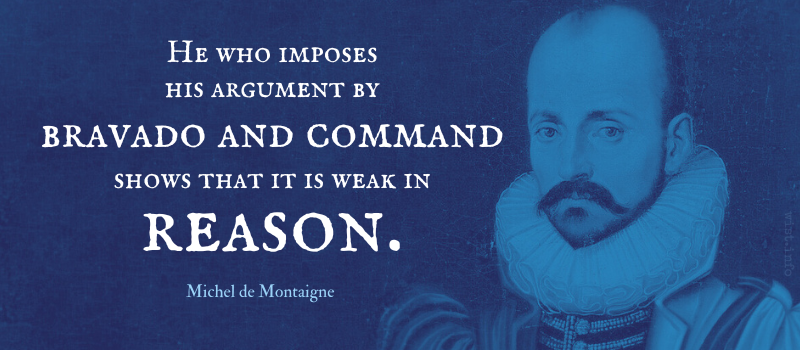What can be asserted without evidence can also be dismissed without evidence.
Christopher Hitchens (1949-2011) English intellectual, polemicist, socio-political critic
“Mommie Dearest,” Slate (20 Oct 2003)
Sometimes referred to as Hitchens' Razor. The concept is not new (consider the Latin phrase "Quod gratis asseritur, gratis negatur"), but was popularized by Hitchens in discussion of contemporary discussion of religion, including in his work God Is Not Great (2007).
While cited by a number of sources to the 2003 Slate article on the canonization of Mother Teresa, the phrase does not appear in the 2016 reprint of the article at the time she was actually declared a saint.
More information (including the original Slate text): The long history of Hitchens' Razor • Background Probability.
Quotations about:
assertion
Note not all quotations have been tagged, so Search may find additional quotes on this topic.
It is better to debate a question without settling it, than to settle it without debate.
[Il vaut mieux remuer une question sans la décider, que la décider sans la remuer.]
Joseph Joubert (1754-1824) French moralist, philosopher, essayist, poet
Pensées [Thoughts], ch. 8 “De la Famille et de la Société, etc. [On the Family and Society]” ¶ 71 (1850 ed.) [tr. Attwell (1896), ¶ 115]
(Source)
(Source (French)). Alternate translations:
It is better to stir a question without deciding it, than to decide it without stirring it.
[tr. Calvert (1866), ch. 8]
It is better to turn over a question without deciding it, than to decide it without turning it over.
[tr. Lyttelton (1899), ch. 7, ¶ 61]
It is better to stir up a question without deciding it, than to decide it without stirring it up.
[tr. Collins (1928), ch. 7]
It is better to debate a question without settling it than to settle a question without debating it.
[Variant]
He who imposes his argument by bravado and command shows that it is weak in reason.
[Qui establit son discours par braverie et commandement, montre que la raison y est foible.]Michel de Montaigne (1533-1592) French essayist
Essays, Book 3, ch. 11 “Of Cripples [Des Boyteux]” (1587) (3.11) (1595) [tr. Frame (1943)]
(Source)
(Source (French)). Alternate translations:
He that with braverie and by comaundement will establish his discourse, declareth his reason to be weake.
[tr. Florio (1603), "Of the Lame or Cripple"]
Who will establish his Discourse by Authority and Huffing, discovers his Reason to be very weak.
[tr. Cotton (1686)]
He who will establish this proposition by authority and huffing discovers his reason to be very weak.
[tr. Cotton/Hazlitt (1877), "On the Lame"]
He who establishes his argument by defiance and by command shews that his reasoning is weak.
[tr. Ives (1925)]
Any man who supports his opinion with challenges and commands demonstrates that his reasons for it are weak.
[tr. Screech (1987), "On the Lame"]
He who establishes his argument by noise and command shows that his reason is weak.
[Source]





